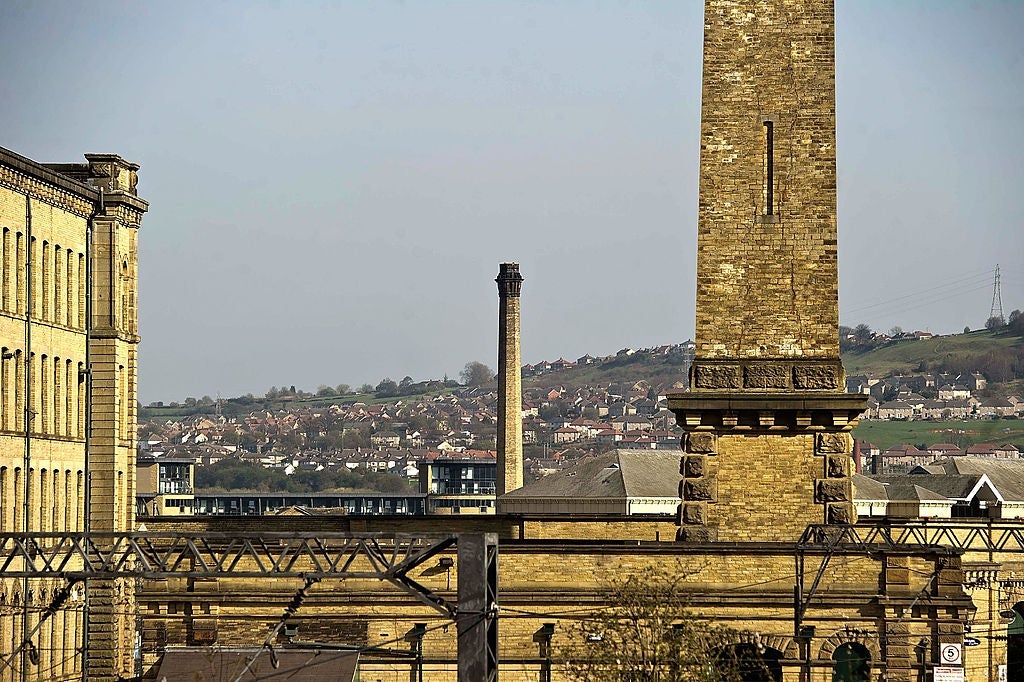
Let’s start by getting the confessions out of the way: I come from Hull. For the uninitiated, Hull is a city on England’s east coast, situated in splendid isolation in the East Riding of Yorkshire. It had been, particularly in the 1800s, a highly prosperous port, and went into the 20th century with the nickname ‘the gateway to Europe’, such was its importance to the UK and beyond. The city’s fishing industry supplied it with jobs, brought in money, and it seemed that the good times would last forever.
Then came 1939, and the roof came falling in, quite literally. Hull’s importance as a port meant it was a frequent target for German bombers in the Second World War, which would often drop leftover incendiaries on the city on the way back from raids on other strategic northern outposts. Some 95% of Hull’s housing stock was destroyed or damaged, and this once attractive city lay in ruins. Compounding this misery in the decades after were the Cod Wars with Iceland – which decimated Hull’s fishing industry – and a more general post-industrial decline that saw unemployment rise and the city stagnate. By the 1990s, there seemed to be no UK-based city league table or ranking that Hull couldn’t finish near the bottom of.
Then, in 2013, the city’s fortunes changed. It was named as the UK’s City of Culture for 2017, succeeding Derry-Londonderry in Northern Ireland. Months later, German manufacturing giant Siemens (now Siemens Gamesa) announced that it would be investing £160m to develop an offshore wind facility in Hull’s Alexandra Dock, transforming the city’s industrial output. The two events were unconnected, but the manner in which they intertwined was perfect. Hull kicked off the City of Culture celebrations with a spectacular audio-visual celebration of its history in the city’s main square, and even the most vociferous of doubters were won over. As the wins racked up throughout the year, Hull garnered positive headline after positive headline. It was no longer the butt of a national joke; it was a city that had, at long last, rediscovered its mojo.
The ghosts of Cities of Culture past
The parallels between Hull, its City of Culture successor Coventry and its predecessor Derry-Londonderry are clear. Coventry was considered to have one of the most archeologically striking city centres in the UK before the Second World War, only for it to be decimated in a blitz that was shocking, even by that conflict’s standards. The industries that the city was built around – mostly related to automotives – saw rapid declines in the 1970s and 1980s, and Coventry became the poster-child for the UK’s post-industrial malaise when a band hailing from its suburbs, The Specials, recorded the hit single Ghost Town about the bleak prospects facing the UK’s youth in 1981.
Coventry needed a shot in the arm, a way to alter its image, and being chosen to host the City of Culture celebrations in 2021 went a long way towards doing that. Like Hull with Siemens, Coventry’s time as City of Culture was combined with a major economic boost through the proposal for a gigafactory to be built on its outskirts that would create up to 6,000 new jobs. Another ‘unfashionable’ UK city was able to challenge what were mostly unfair preconceptions.
The turbulent past of Derry-Londonderry can be seen through the very fact that I have to refer to the city by a hyphenated name. It was the location most associated with the Troubles in Northern Ireland in the 1970s and 1980s, particularly the events of 30 January 1972, when British soldiers shot 26 unarmed civilians during a protest march, leading to the deaths of 14 people in an event that came to be known as Bloody Sunday. Even after the violence and tensions died down in the aftermath of the Good Friday Agreement being signed in 1998, the city’s name(s) remained synonymous with sectarian violence for many in the UK. Derry-Londonderry needed something to enable it to alter this narrative. Hosting the City of Culture celebrations in 2013 allowed it to do just that.
So what can Bradford learn from its predecessors? What can it expect in 2025, beyond some high-profile events and positive media coverage?
Can culture save a city?
Beware of over-expectation. Being the UK City of Culture won’t solve all of the socio-economic problems the host is contending with. Unemployment won’t come down by a noticeable degree, exam results in the city’s schools won’t suddenly improve as a result of the celebrations. Investors may look at Bradford more favourably in the run up to 2025, but there is no guarantee of this. Miracles should not be expected.
The benefits gained from hosting the City of Culture celebrations shouldn’t be underestimated either. Despite its time as the City of Culture being affected by the Covid-19 pandemic, Coventry saw more than £172m invested in funding music concerts, public art displays, a new children’s play area in the centre of the city and improvements to public transport. Some £500m has been ploughed into the city’s regeneration since it was confirmed as the UK City of Culture. In 2017, Hull saw a 10% increase in visitor numbers, with a value of more than £300m. According to a report by the University of Hull, the total gross value added to the local economy was somewhere between £11m and £17m.
It is the feel-good factor, however, that many in Derry-Londonderry, Hull and Coventry point to when summing up their experiences of hosting the City of Culture celebrations. Mark Jones is the director of regeneration at Hull City Council, and of the city's year in the spotlight, he says: “In our experience, our period as City of Culture was transformative in terms of our peoples' pride in the city and participation in collective events. Everyone worked really hard to both secure the bid and create the conditions and relationships for an invested approach that is reaping great rewards as a confident and proud city of Hull looks to the future.”
Sir Phil Redmond, the chair of the City of Culture Expert Advisory Panel, is another who is keen to highlight the more intangible benefits that such a focus on culture can bring to a city. "Culture can act as a catalyst for community engagement, civic cohesion and a driver for economic and social change," he said when announcing the 2025 shortlist.
In Coventry, the director of business, investment and culture at the city council, Andy Williams, saw his adopted home city transformed. "It was a year for the people of Coventry to enjoy and to benefit from," he says. "You can see that in the changes to our city centre, the new venues and attractions and the new energy in the city. People of all ages and all backgrounds have been caught up in the excitement of the year and that is what has made it so special. We have been able to attract investment that has backed our plans for the year, but also shown faith in the Coventry we are building for the future. That is because of the title of UK City of Culture. It is a role that has delivered all we hoped it would. It has changed our city physically and spiritually, and Coventry and its people will be feeling the benefits of that title for some time to come."
There are some things you can't quite put a price on, and lifting the spirits of a city that has taken its fair share of knocks is one of them, which is evident in the quotes from both Jones and Williams. The citizens of Derry-Londonderry, Hull and Coventry could walk around with their heads held higher as a result of the image transformations their cities went through in 2013, 2017 and 2021/22, respectively. Those living in Bradford will do the same in 2025 and for some time after.
What will Bradford be able to look forward to in 2025?
Every city has a past dotted with hardships, and Bradford is no different. It used to be regarded as one of the most prosperous cities in Europe when its textiles industries were thriving in the early 1900s. It was known as the champagne and Rolls-Royce capital of the UK. However, as cheaper international competitors saw its textiles industry crumble, Bradford could only look on enviously as Leeds, a city just 13km to its east, became hugely prosperous in the second half of the 21st century. Even Bradford's strength as a media city (a status recognised by Unesco) seemed to be usurped by its Yorkshire neighbour when it was chosen as the new headquarters of TV station Channel 4 in 2019. Bradford is still renowned for its innovative spirit, and areas such as Saltaire are of huge historical significance, but hosting the City of Culture celebrations will help it further emerge from Leeds' shadow.
Hosting the City of Culture celebrations won’t change the record for a city, but it can move the stylus, as Derry-Londonderry, Hull and Coventry have found out. Within a few years of the City of Culture celebrations ending, the intangible mementos of its presence in Bradford will vastly outnumber the tangible ones. Being the City of Culture in itself isn’t a golden bullet that guarantees future prosperity. It is an opportunity to press the reset button, however, and to look at how Bradford is perceived nationally and internationally by would-be visitors and might-be investors. A city's quality of life – which runs hand in hand with its cultural offering – is rising in importance to investors, and this renewed focus on the arts in Bradford will do it no harm whatsoever. Officials in the city may, however, be looking at the industrial legacy that Hull and Coventry have been enjoying from the years surrounding their hosting of the City of Culture celebrations, and hoping that their time in the spotlight brings similar results.
For more of Investment Monitor’s coverage of the UK’s cities, read through our Future of British Cities series:
- Aberdeen
- Belfast
- Birmingham
- Bradford-Leeds
- Brighton
- Bristol
- Cardiff
- Coventry
- Dundee
- Edinburgh
- The East Midlands
- Glasgow
- Hull
- Kent
- Leeds-Bradford
- Liverpool
- Manchester
- Newcastle and the North East
- Norwich
- Plymouth
- Portsmouth
- Reading
- Sheffield
- Southampton
- Stoke-on-Trent
- Swansea
- Wolverhampton







